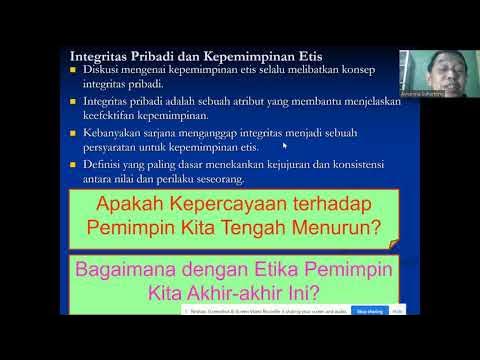This will drastically change your entire life
Summary
TLDRThe video script discusses the struggle with consistency in building a healthy lifestyle and the importance of understanding human behavior to create lasting change. It explores the concept of linking pain and pleasure to form new habits, using personal examples like associating running with emotional relief. The speaker also touches on the power of visualization in achieving goals, the impact of procrastination, and the need for consistency in all aspects of life. The script concludes with a call to take control of one's life by mastering the use of pain and pleasure.
Takeaways
- 🏃♂️ The importance of consistency in building a healthy lifestyle rather than relying on fleeting motivation.
- 🔗 Understanding the human behavior principle that people often do more to avoid pain than to gain pleasure.
- 👟 Creating positive associations through activities like running can lead to a lasting change in behavior.
- 🎵 The power of music in creating emotional relief and associating it with a positive activity like running.
- 🍪 Changing eating habits involves linking pain to overeating and pleasure to eating smaller portions.
- 🎓 Visualization as a tool for success, as the brain doesn't distinguish between imagination and reality.
- 🧠 The concept of 'neural association' and how it can be used to change behavior towards healthier choices.
- 📚 The recommendation of a class on the power of habit by productivity expert Thomas Frank on Skillshare.
- 🤔 The strategy of focusing on the pain of not taking action to combat procrastination.
- 🚫 The need to avoid perfectionism and instead aim for consistency in achieving goals.
- 💪 The message that mistakes are part of the process, and the importance of forgiving oneself and trying again.
Q & A
What is the main challenge the speaker is facing in their journey towards a healthier lifestyle?
-The main challenge the speaker is facing is inconsistency in maintaining a healthy lifestyle due to cravings and the difficulty of getting back on track after falling off.
What does the speaker suggest as a solution to the problem of inconsistency in building a healthy lifestyle?
-The speaker suggests understanding the fundamentals of human behavior and creating lasting change by linking pain and pleasure to certain behaviors.
According to the script, what is a key principle in human behavior that can be leveraged for change?
-A key principle is that humans will often do more to avoid pain than to gain pleasure, and by changing what is linked to pain and pleasure, one can change their behavior.
What is the two-step process the speaker outlines to change one's behavior?
-The two-step process involves first getting oneself to feel a certain way strongly and then linking that feeling to something else, creating a new association.
How does the speaker explain the concept of 'what gets fired together gets wired together' in relation to their running habit?
-The speaker explains it by sharing their experience of associating the emotional relief from crying with running, creating a positive neural association that makes them want to run whenever they feel a certain way.
What role does music play in the speaker's running routine and how does it influence their behavior?
-Music plays a significant role as the speaker listens to a specific song on repeat while running, which over time creates a strong association between the song and the act of running, prompting them to run whenever they hear it.
What technique does the speaker recommend for dealing with overeating and creating a healthier eating habit?
-The speaker recommends visualizing oneself in the body they are most confident in and consciously making a connection between not finishing everything on their plate and achieving their goal.
How does the speaker describe the power of visualization and its effect on the brain?
-The speaker describes visualization as a powerful tool because the brain doesn't know the difference between imagination and reality, thus building neural networks as if the visualized experience had already occurred.
What is the course mentioned by the speaker and where can it be found?
-The course mentioned is about the power of habit taught by productivity expert Thomas Frank on Skillshare, an online learning platform.
What advice does the speaker give for dealing with procrastination on a school project?
-The speaker advises to visualize the pain of not taking action, such as the consequences of not completing the project on time, and to link pleasure to the initial task of the project to make it more enjoyable.
What is the final message the speaker conveys about consistency and its relation to success in various aspects of life?
-The final message is that consistency, not perfection, is key to success in wealth, relationships, health, and other aspirations, and that one should learn to forgive themselves and try again when they fall off track.
Outlines

هذا القسم متوفر فقط للمشتركين. يرجى الترقية للوصول إلى هذه الميزة.
قم بالترقية الآنMindmap

هذا القسم متوفر فقط للمشتركين. يرجى الترقية للوصول إلى هذه الميزة.
قم بالترقية الآنKeywords

هذا القسم متوفر فقط للمشتركين. يرجى الترقية للوصول إلى هذه الميزة.
قم بالترقية الآنHighlights

هذا القسم متوفر فقط للمشتركين. يرجى الترقية للوصول إلى هذه الميزة.
قم بالترقية الآنTranscripts

هذا القسم متوفر فقط للمشتركين. يرجى الترقية للوصول إلى هذه الميزة.
قم بالترقية الآنتصفح المزيد من مقاطع الفيديو ذات الصلة

Why Losing Belly Fat Takes SO Long (The Honest Truth)

Lewin’s Change Theory - UnFreeze, Change, ReFreeze Method

Cara Mengubah Kebiasaan Buruk dan Hidup Lebih Sehat (Ubah Kebiasaan Kamu dengan Ilmu Psikologi)

How To Attract Girls | Models Book Summary in Hindi

Change Your Life - One Tiny Habit at a Time

Kepemimpinan 12
5.0 / 5 (0 votes)
